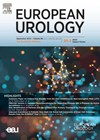
Journal Reviews archive for November 2024
All biochemical recurrences are equal, but some are more equal than others
Despite significant technological advancements, radical prostatectomy (RP) and radiotherapy (RT) are not always effective in curing localised prostate cancer (PCa). Many patients experience a rise in prostate-specific antigen (PSA), known as biochemical recurrence (BCR), leading to considerable anxiety and a...
Rethinking stone-free rates and surgical outcomes in endourology
Retrograde intrarenal surgery (RIRS) and percutaneous nephrolithotomy (PCNL) are two key minimally invasive treatments for kidney stones in both adults and children. The success of these procedures is primarily measured by two factors: (1) the absence of complications and (2)...
Patients’ preferences for additional (cytoreductive) treatments to the prostate and metastasis in metastatic prostate cancer
Patients diagnosed with metastatic prostate cancer at first diagnosis or de novo synchronous metastatic hormone-sensitive prostate cancer (mHSPC) have had reported increases in overall survival due to rapid advances and intensification of systemic therapy regimes beyond traditional androgen deprivation therapy...
Evaluation of a web-based eHealth programme for children with urinary incontinence: eADVICE Trial
Long waiting times for specialist urology outpatient clinics for children are frustrating for both parents and health practitioners. Delays may result in a deterioration in health and quality of life. Electronic Advice and Diagnosis Via the Internet following Computerized Evaluation...
Long term outcomes of primary ureterovesicostomy for the primary obstructive megaureter
Primary obstructive megaureter is dilatation of the ureter secondary to narrowing at the vesicoureteric junction (VUJ). Many (80%) require no intervention, however, a select number do for worsening hydroureteronephrosis, decreasing renal function, prolonged drainage time, recurrent urinary tract infections or...








